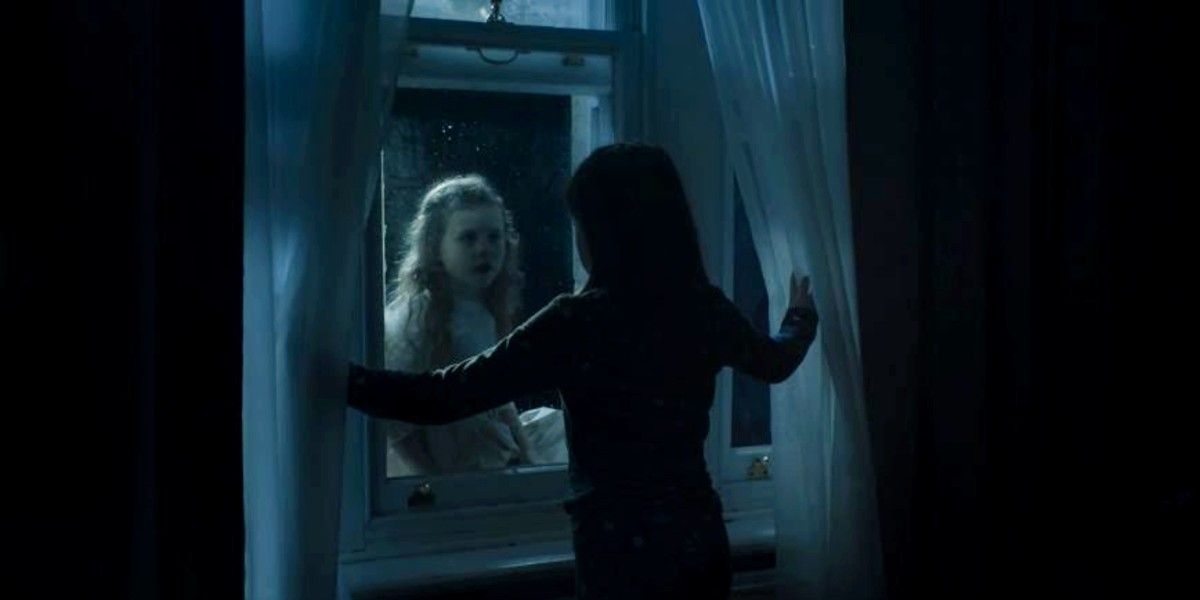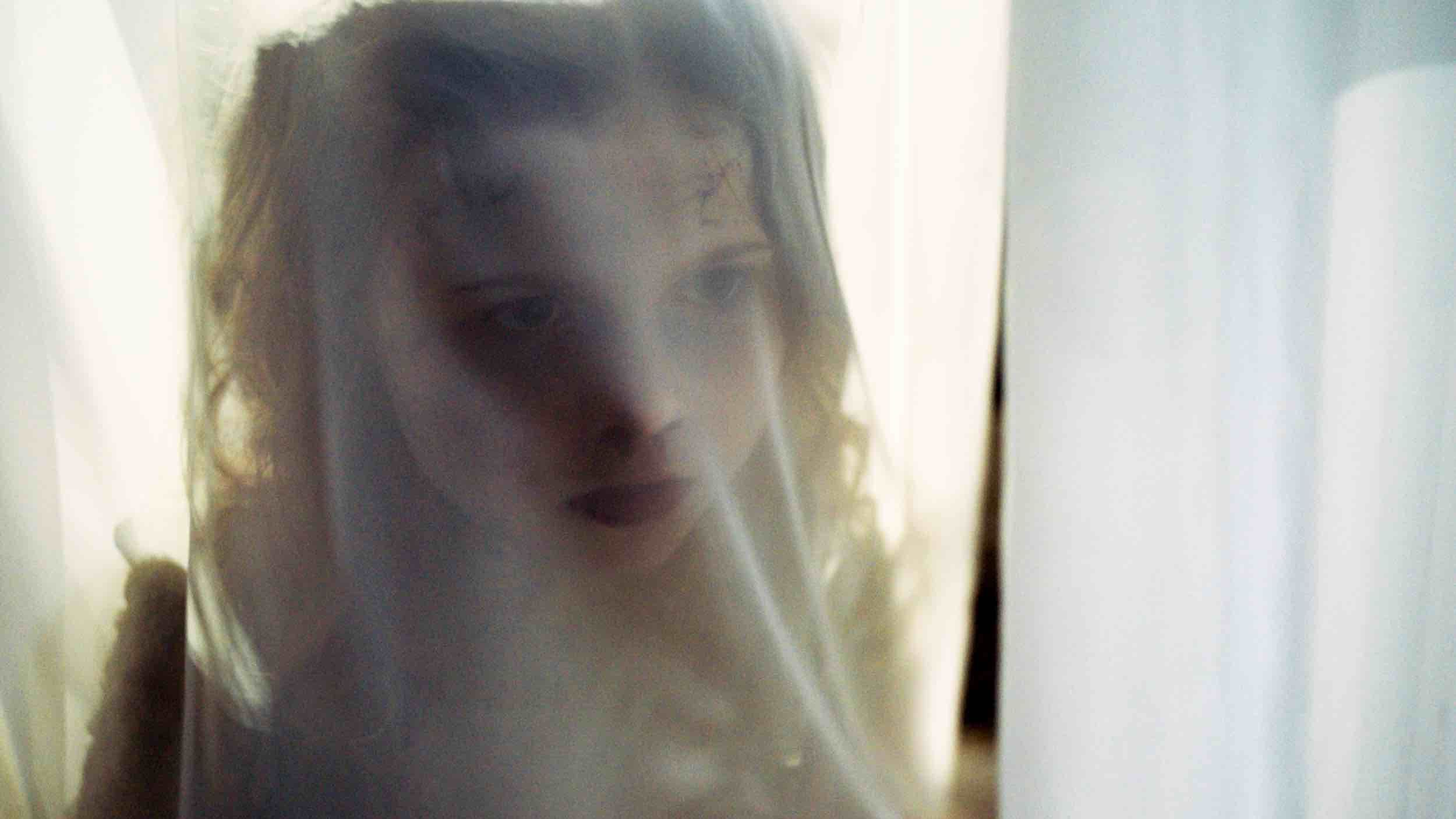Martyrs Lane is the kind of ghost story that works best when you don't know its premise. Written and directed by Ruth Platt, the haunting film explores unprocessed grief and how it affects those closest to you. As with any harrowing film about death, there's an added edge to its direction when it catches you off guard -- much like it does for the film's characters.
For those who want to know a bit more than that, Martyrs Lane centers its story on Leah (Kiera Thompson), a girl growing up in a vicarage with her distant mother Sarah (Denise Gough), her angsty older sister Bex (Hannah Rae) and her clergyman father (Steven Cree). As Father Thomas spends most of his time attending to his parishioners in the community and Bex is out with friends, Leah is stuck indoors with her mother who she tiptoes around and secretly watches from behind doors. Leah's mom seems very attached to a golden necklace that she wears, which causes Leah too to obsess over it and even have nightmares about it.
Off the bat, Martyrs Lane evokes an eerie tone through its ever-watchful lead and shadowy glimpses of fear. It's immediately clear that something is off in the home, and something is fractured between Leah and Sarah, but the film withholds diving into why. Instead, we're kept in Leah's perspective for the entirety of the film, which cleverly ups the film's mystery. We see Sarah crying a lot, but no one tells Leah why. Platt is well aware that, while telling any story from a child's perspective can be daunting, it also graces the film with a genuine sense of naivety and wonder and even a bit of frustration at being left out of larger discussions. As the audience, we know there's something that Leah is missing, and while it might take less time for the audience to unravel the truth than for Leah to, it is no less thrilling to root for her.
That being said, it's not a film that's racing to put together its clues. It stumbles and meanders in the way that children do, and it takes about 30 minutes of the runtime for the first pieces of the puzzle to come together. However, once the audience adjusts and accepts that they're in Leah's world, it becomes easy to slip into its curious rhythm. That's made all the easier by Thompson's Leah, who is neither saccharine nor bratty nor oddly impersonal. Thompson breaks free from the typical tropes associated with child protagonists in horror and leans into something all the more heartfelt and reminiscent of Fernando Tielve in Guillermo del Toro's The Devil's Backbone. Leah shows heart, courage, boredom and spitefulness.
However, Thompson is not the only child actor in Martyrs Lane who shines. Without delving into who she is, Sienna Sayer's Rachel clearly relishes her role as a spirit who visits Leah at night. While Sayer holds her own in scarier moments, it's really the ease of her playfulness with Thompson that feels genuine. Before the film ratchets up its tension in the third act, it makes sure audiences have had their fair share of joy with Leah and Rachel -- a choice that feels essential by the film's end and adds to the sorrowful weight of its final scene.
While Martyrs Lane will no doubt be compared to The Babadook, another horror film that uses the genre and its monsters to explore grief, that would truly do a disservice to Platt's writing and direction. As much as this film revels in what happens when we push down feelings of grief and try to bury memories of those we've lost, it also equally makes room to speak about the power of memorializing life. In fact, it argues that all the pain and misunderstandings caused throughout the film are caused by willfully ignoring life.
Martyrs Lane made its world premiere at Fantasia's 25th International Film Festival. In June, Shudder purchased the rights to stream the film exclusively starting Sept. 9.


